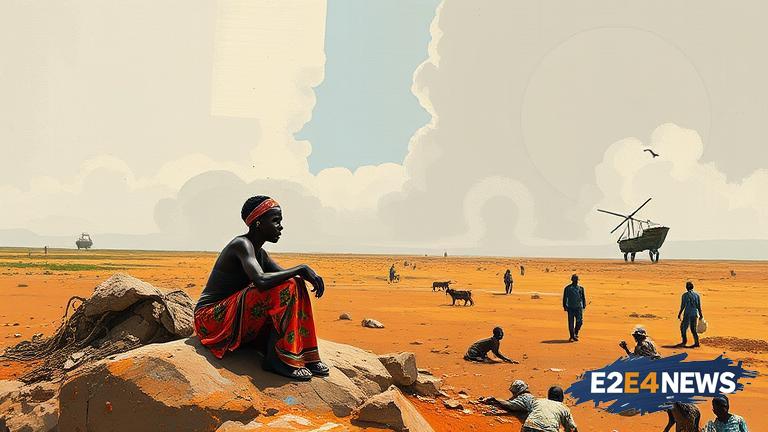Angola, a country rich in natural resources, is facing a severe wealth disparity crisis. The rich are getting richer, while the poor are getting poorer. This is evident in the lavish lifestyle of the wealthy, who are seen feasting and enjoying luxuries, while the majority of the population struggles to access basic necessities like food, water, and healthcare. The country’s economy is heavily reliant on oil exports, which has created a small elite of wealthy individuals who control the majority of the country’s wealth. The government has been criticized for its failure to address the issue of poverty and inequality, with many accusing it of being corrupt and only serving the interests of the wealthy. The poor, on the other hand, are left to struggle, with many living in poverty and without access to basic services. The wealth gap in Angola is not only a moral issue, but also a threat to the country’s stability and security. As the poor become increasingly desperate, there is a growing risk of social unrest and conflict. The international community has called on the Angolan government to take action to address the issue of poverty and inequality, but so far, little has been done. The rich, meanwhile, continue to accumulate more wealth, often through corrupt means. The country’s wealthy elite have been accused of using their power and influence to exploit the poor and accumulate more wealth. This has created a system of patronage, where the wealthy use their power to maintain their position and accumulate more wealth. The poor, on the other hand, are left to struggle, with many forced to live in poverty and without access to basic services. The issue of poverty and inequality in Angola is complex and multifaceted, and will require a comprehensive and sustained effort to address. The government, civil society, and the international community must work together to create a more equitable society, where everyone has access to basic services and opportunities. This will require a fundamental transformation of the country’s economy and political system, as well as a commitment to transparency and accountability. The rich must be held accountable for their actions, and the poor must be given a voice and a chance to participate in the country’s decision-making processes. The future of Angola depends on it, and the international community must play a role in supporting the country’s efforts to address the issue of poverty and inequality. The time for action is now, and the world is watching. The people of Angola deserve a better future, and it is up to the government, civil society, and the international community to make it happen. The issue of poverty and inequality in Angola is a human rights issue, and it is the responsibility of all stakeholders to ensure that the rights of all citizens are respected and protected. The wealthy must be held accountable for their actions, and the poor must be given a chance to participate in the country’s decision-making processes. The government must take action to address the issue of poverty and inequality, and the international community must support these efforts. The future of Angola depends on it, and the world is watching. The people of Angola deserve a better future, and it is up to all stakeholders to make it happen. The issue of poverty and inequality in Angola is a complex and multifaceted issue, and will require a comprehensive and sustained effort to address. The government, civil society, and the international community must work together to create a more equitable society, where everyone has access to basic services and opportunities. This will require a fundamental transformation of the country’s economy and political system, as well as a commitment to transparency and accountability. The rich must be held accountable for their actions, and the poor must be given a voice and a chance to participate in the country’s decision-making processes. The future of Angola depends on it, and the international community must play a role in supporting the country’s efforts to address the issue of poverty and inequality.





